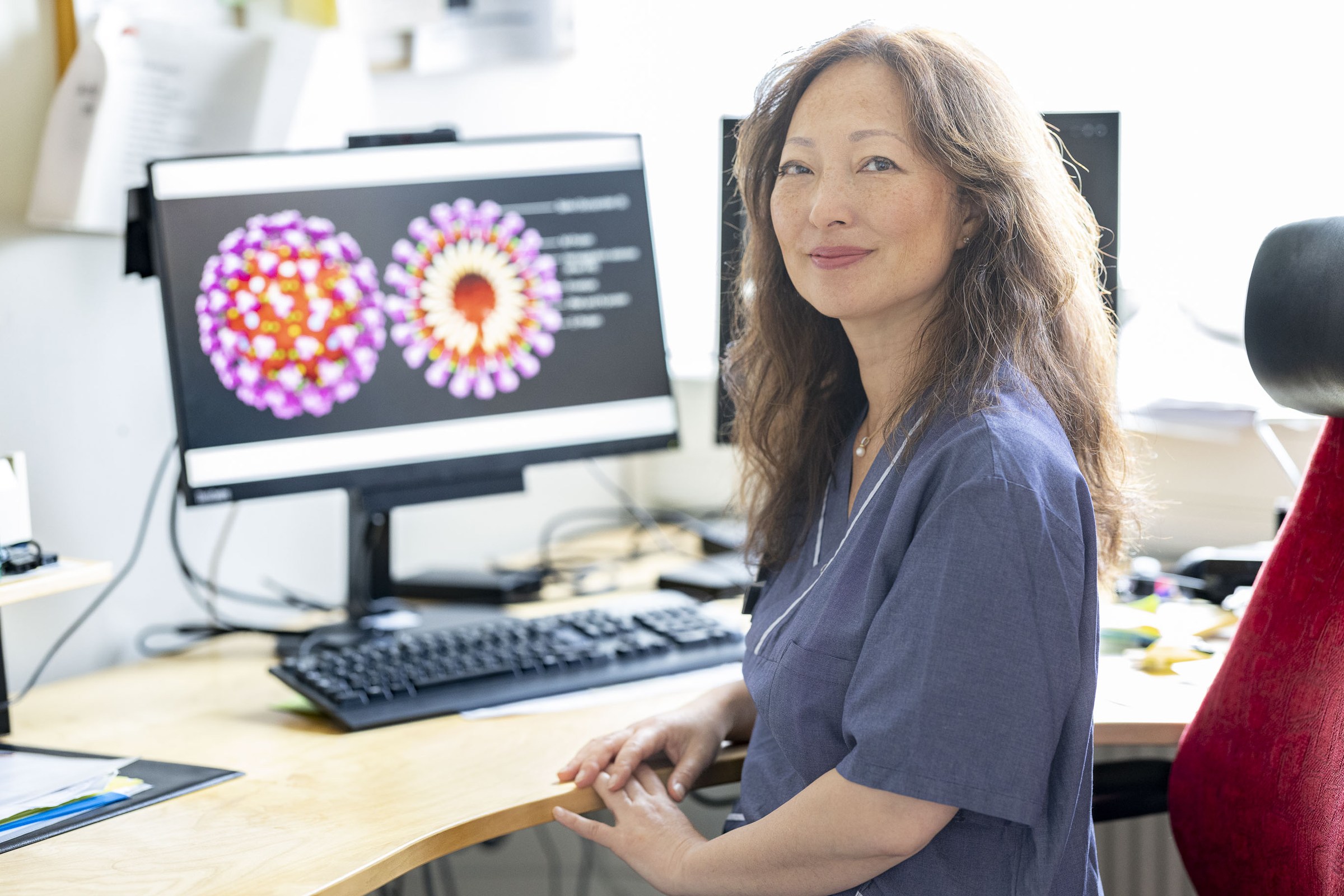Karolinska University Hospital is participating in an international clinical trial against hepatitis D

Chronic hepatitis D virus infection (HDV) is the most aggressive form of viral hepatitis. So far, there have been no approved treatments for hepatitis D, but pegylated interferon-alpha has been used as an off-label treatment with poor virological response, approximately 15%. Now, a phase 3 clinical trial with a new drug called bulevirtide has been studied in patients with chronic hepatitis D, where 45% of the patients had a virological response to the treatment at week 48.
Karolinska University Hospital, as the only study site in Scandinavia, has enrolled patients in the clinical trial, and the study has now been published in the June issue of the New England Journal of Medicine. The Department of Infectious Diseases also involves Professor and Senior Consultant Soo Aleman, Senior Consultant Karin Lindahl as investigators, as well as research nurses Susanne Cederberg and Annika Olsson.
"It is very gratifying that we finally have a new medication for the severe disease of chronic hepatitis D. Previously, we haven't been able to effectively help our patients against the progression of liver failure and the development of liver cancer. We have started treating our hepatitis D virus-infected patients with this medication and will evaluate their progress," says Soo Aleman."
Text: Nneka Magnusson Amu